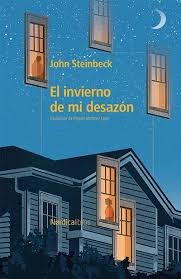About the book
Elena Francis, one of the greats fakes of our history
«Consult Francis. Be Francis, Francis, Francis’s friend. The advice is from Francis. Francis, Francis. The beauty is Francis. Francis. “Francis.”
The lives of an entire generation of women marked by the most famous office on the radio. By the author of The miracle of breadcrumbs.
Franco’s propaganda entered every home in the country through the airwaves in the most innocuous way: a supposed radio beauty clinic created solely to domesticate Spanish women. They instructed them to forgive infidelities, forgive humiliations, forgive blows, that salvation lies in forgiveness. But not to forgive themselves.
«If you had any decency, dear friend, if you really wanted to console Spanish women, you would end your program. I hope the day comes when we will never hear your voice again, because words kill, and you know it.
This novel aims to settle accounts with our past through the story of Berta, Gabriela, Ramona, Jacqueline, Carmen and Elvira. They will not bow their heads and decide their own destiny.
Barcelona, May 1952. The city is bustling with preparations for the XXXV Eucharistic Congress, an imposing celebration of the Catholic faith that aims to breathe hope into a country broken by post-war misery. The radio, as synonymous with modernity, enchants women throughout the country with a space where they are the protagonists: the office of Dr. Elena Francis.
Berta, a twenty-year-old orphan adopted by Eleonora and Sebastián, arrives in the city with her mother and little sister to attend the Congress. They come from an Aragonese town and are fervent followers of the office. The three of them hope to meet the legendary Dr. Francis and that she will guide them to solve a personal problem that they do not share with anyone else. They have never suspected the deception that is hidden behind that voice that oppresses them with the excuse of helping them.
«Annihilate the model of the republican woman. For impious. For vulgar. For shameless. For dangerous. For whore. And at those dinners, with lamb, with wine, with white bread, both they and they defined that national Catholic woman, that submissive goddess, silent, smiling and discreet, always at the service of God, of the family, always a martyr, more virtuous the more suffering she was able to embrace in silence.
The three women stay at the house of Úrsula, Eleonora’s cousin and scriptwriter for the radio clinic, and meet her daughter, Gabriela, who works as an announcer. The moment they step into the radio studio, Berta’s life takes a turn: she dares to dream of being part of that world that takes her away from misery and brings her closer to a type of life that is forbidden for a poor girl from a humble town.
Her dreams of freedom creak in a society in which a woman’s role is reduced to the home. And not only Berta’s worries: also those of Gabriela, who hides a history of abuse. Or those of Elvira, a kind prostitute who flees the mistreatment of her pimp. Or that of Juana, a midwife who can no longer continue practicing her profession. Or Eleonora’s, who blames herself for not getting her husband’s attention. All of them, crushed women, must decide if they are capable of making decisions that separate them from the destiny of unhappiness that society has imposed on them.
«The Government and the Church have convinced them that their duty is to be at home, taking care of their loved ones, protected from the supposed dangers that threaten them when they enter the door of their house. And they watch the street through their window glass, just like my little ones. —Caresses the fish tank—. They have convinced them that this is their place, that they must be angels of the home. Angels of the home… how ridiculous this expression has always seemed to me. Sweet, obedient… accommodating angels. “Bitter angels who judge women who swim in the open sea without really knowing what that is.”
WOMEN IN THE POST-WAR AND THE CONSULTATION OF ELENA FRANCIS
The Spanish post-war period was an especially oppressive time for women, who saw not only their freedoms but also their thoughts diminished. As if it were brainwashing, the entire society was imbued with principles that infantilized them, judged them and relegated them to the home.
A model of a perfect woman was created, smiling, sweet, self-sacrificing, who did not exceed the boundaries of the home, who annulled herself for the sake of faith and social order, who accepted suffering and injustice without protest. Through different institutions that sought to protect women and that stood as symbols of modernity, such as the Women’s Protection Board, a system of social control was implemented that imposed harsh penalties for those who violated it.
The effectiveness of the method did not lie solely in its punishment measures, but in the creation of a discourse that settled in the conscience of millions of women, which broke into their privacy, hitting them with feelings of guilt and constant insecurity.
One of the tools to achieve this was the office of Dr. Elena Francis (1947-1984), a space sponsored by the supposed doctor who directed the Elena Francis Beauty Institute and who provided advice on beauty.
«They had asked her to go beyond beauty advice, to combat moral degeneration, to teach Spanish women that their place was in the home, at the service of their husbands, their children, embracing noble ideals. She had praised the cunning and intelligence with which she sculpted the character of Elena Francis. She is another fair, perfect, tough and savior goddess. The voice of a wise woman who was listened to, admired, revered in a country of voiceless women. Dr. Elena Francis would speak for everyone.
The women, admired by his closeness, began to change the nature of their consultations, which led to personal topics. The responses, written by screenwriters, psychologists and censors, advised listeners to accept abuse or forgive whatever it took for the good of the family unit. In short, not to protest and accept, since as the doctor usually repeated: women have come to this world to suffer. In the program, seven letters were answered live, but the amount of correspondence they received was enormous and many of them could not be broadcast due to their lurid content. To do this, a team of “letter answerers” was hired who had to “guide” the women, sending them a personalized response with always repressive content.
«That is not the worst thing, at least for her, because it is not enough for them to indoctrinate women from the radio. They also do it by responding one by one to the desperate letters they receive. Pretending that the fictional doctor cares about each and every one of them and responds personally to her home with letters that should comfort, but that only constrain and isolate the authors from her. Letters that she and her eleven companions write and that Don Paco reviews and that they sign as Elena Francis, becoming accomplices in the great deception.
THE HISTORICAL CONTEXT
The XXXV Eucharistic Congress It is the framework in which the narrative takes place. This event marked the consolidation of the Franco regime sponsored by the clergy, who in return achieved privileges that served to impose their convictions throughout generations. This celebration was intended to mark the end of post-war misery, but it was a cosmetic act: ration cards were abolished two months before the celebration, but returned shortly after it ended.
«This is all a setup. Yes. An atrocious setup, because the Church supports the regime, because now the demon is no longer fascism, but communism — he speaks very quickly. And? The important thing is that for a few days these people will have something to believe in and hope, which is what they need most.
The Women’s Protection Board was created in 1941, it belonged to the Ministry of Justice and was chaired by Carmen Polo de Franco. It was an entity that, with the excuse of helping women, controlled them, persecuted them and locked them up. The guardians of the Board of Trustees controlled the young women, and if they saw an attitude that they considered indecorous, such as walking hand in hand with a man who was not part of their family, they called the police. Afterwards, they asked the parents to sign a transfer of power in favor of the Board of Trustees and the young women were locked up in convents, which served as correctional facilities. There was no sentence: the Board of Trustees would decide when it considered appropriate to release them. Furthermore, they could extend the age of majority – and therefore the confinement – until they were twenty-five years old.
Shanty-townism is another of the themes that collaterally appears in the novel, which is exemplified by one of the characters, Juana, who before the Congress lived in an illegal settlement on Diagonal Avenue – then known as Generalissimo Avenue – that was destroyed a few years ago. days before the celebration. In her place a gigantic altar was built through which the international curia paraded in large mass masses. The inhabitants of the old shacks were moved to the Can Clos buildings, which were half built, so they lacked basic supplies. They were also insufficient to house all the inhabitants of the dismantled settlement, so different families had to share apartments so tiny that their inhabitants were sometimes forced to sleep standing up due to lack of space.
Prostitution, also very present, shows the double standards of the time, because despite the suffocating principles that were imposed on women, brothels that paid their taxes to the State were allowed, although street prostitution was also persecuted.
Source: https://algunoslibrosbuenos.com/una-pregunta-para-elena


